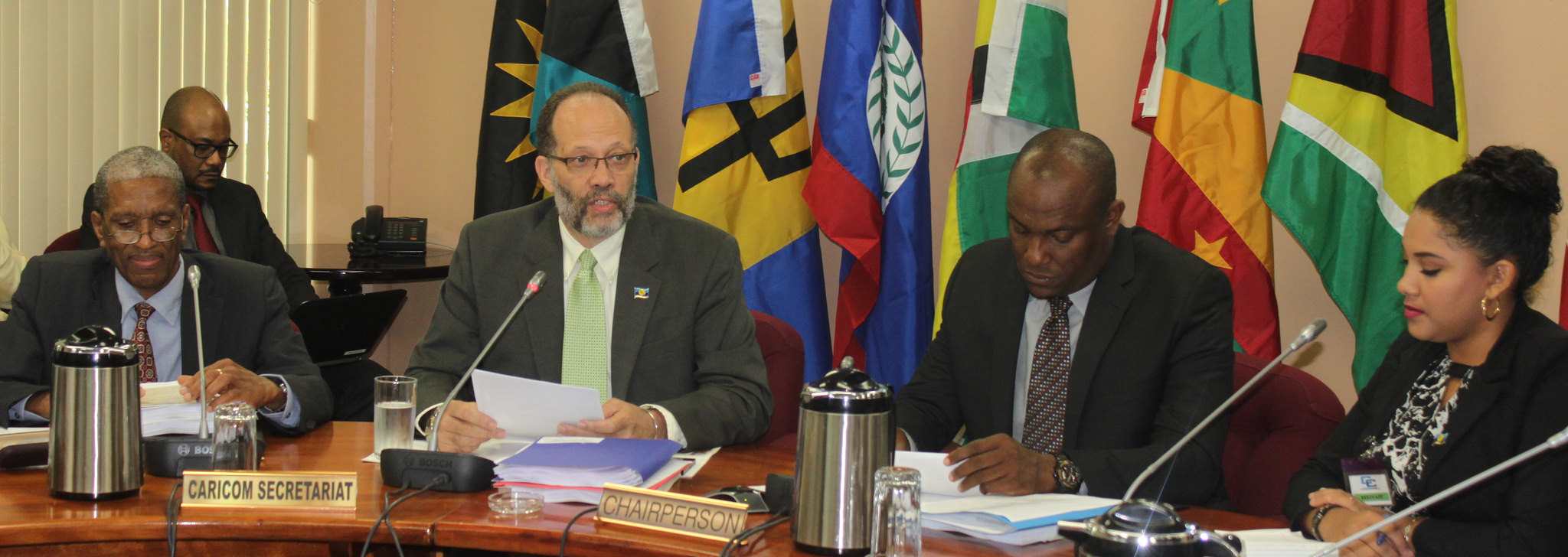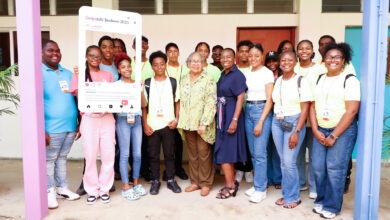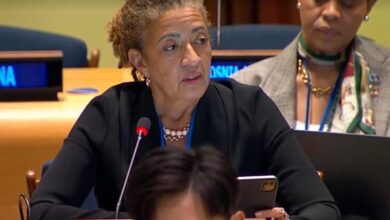It is my pleasure to warmly welcome you to the Twenty-Ninth Meeting of the Council for Human and Social Development (COHSOD) on Youth and Culture. I welcome, especially, those of you who are visiting our Community Headquarters for the first time.
To the Hon. Evans Rogers, Minister of Health and Social Development with responsibility for Youth and Culture of Anguilla, I extend special greetings to you, as you attend your first COHSOD Meeting. I have no doubt that the discussion will benefit from your ideas and views.
I know that this week has been devoted to having robust and constructive dialogue on issues related to the situation of youth in the Region. This began with the Regional Forum on Youth Crime and Violence on Monday and Tuesday, followed by the Eighth Meeting of Directors of Youth Affairs on Wednesday, and now the Twenty-Ninth Meeting of COSHOD.
I understand that our CARICOM Youth Ambassadors and other youth representatives were active partners in all these deliberations, in shaping the outcome and in charting follow-up action. This is highly commendable and those of us who were not able to attend the Forum this week are looking forward to hearing the recommendations of the gathering.
Mr. Chairman, the scourge of crime and violence is a crippling burden with which many of our Member States and Associate Members are grappling. It seriously compromises citizen security, and robs our societies of the creative potential and energy of our youth in particular, who are both victims and perpetrators. The social, psychological and economic cost is too high. Although we know that it is a minority of our youth who have fallen victims to a life of crime, it is an important minority that we need to address urgently.
The Forum that was held this week was intended to do just that. Participants explored mechanisms for greater collaboration among relevant Institutions and Development Partners, and shared good practice in implementing sustainable measures to prevent youth crime and violence.
As Secretary-General, I have had the pleasure, during my tenure, of interacting with some of the Region’s finest young people who serve as professionals in various fields, as youth leaders, as activists and as academics. Meeting young people during my visits to Member States and participating in social media interactions with them across the Region have been important engagements for me personally. And I have seen and heard, first hand, that we have exceptional young people all over our Community who are committed, who are passionate, and who are contributing in meaningful ways to national development and regional integration. I have been truly inspired on many, many occasions and pay tribute today to all those outstanding young people across our Community.
The theme of this COHSOD is “Leveraging CARICOM’s Human and Cultural Assets for the Development of the Community”. This speaks pointedly to the tremendous opportunity we have, in both developing our youth and our cultural assets. Our Heads of Government reflected on this theme at their Twenty-Sixth Inter-Sessional Meeting in the Bahamas in 2015. They observed that a strategy that combines the cultural and sporting assets with the Region’s innovative youthful human resource, and with new technologies, would open up opportunities for a new and sustainable development pathway that leverages the Community’s strengths.
The development of that youthful human resource will engage your attention as you conduct a five-year review of the Report of the CARICOM Commission on Youth Development, and the Declaration of Paramaribo on the Future of Youth in the Caribbean Community. These seminal documents were both considered by Heads of Government in 2010 and represent a watershed moment in youth development in our Region. It is an appropriate moment for reflection and assessment of our progress and to re-double our efforts to address the challenges to full implementation of those important recommendations.
I pause here to recognize a successful project which had its genesis in those recommendations. Creativity for Employment and Business Opportunity (CEBO), a Project of the CARICOM Secretariat in collaboration with our Development Partners, has been recognised as a regional best- practice model. It has developed entrepreneurial skills among our youth and, here with us today, is one beneficiary, Ishmael Douglas, who has actually started his own business following his involvement with the Project.
We continue to advance, and must never let go of those important principles advanced by the Youth Commission in the Report – Eye on the Future, Investing in Youth NOW for Tomorrow’s Community. We must understand our youth; we must partner with them in the development process; we must invest in them and see them as our finest assets and not a problem to be solved.
The Commission’s Report strongly recommended that our Governments invest in young people’s development and the Report presented some important estimates of the cost of not putting those investments in place. With respect to employment, the Commission reported that if youth unemployment levels were reduced to the adult levels in several Member States, this would result in growth of 1 – 2.5 percent of GDP. If we could reduce the rate of youth crime in half, this would result in growth of 1.5 percent of GDP in some Member States. Additionally, conservative estimates place annual direct expenditure on youth related crime and violence in 5 Member States, at between 2.8% and 4% of GDP.
Mr. Chairman, Honourable Ministers, Delegates, our Heads of Government have highlighted cultural industries as a priority area for job creation and growth. At that Meeting in the Bahamas in 2015, they acknowledged the potential of the cultural and creative industries in contributing to the development of the Region. They reaffirmed the significance of the sector as a driver of social development and cohesion, cultural identity and diversity, and youth engagement. This reinforced the identification in the CARICOM Strategic Plan of the Creative Industries as one of the key drivers of economic growth.
It was further underlined when I had the pleasure of attending CARIFESTA XII which was hosted successfully by Haiti in August 2015. It was a very special and enjoyable experience. I experienced first hand in Haiti, the tremendous value of culture in strengthening our regional integration movement, in building Community spirit and understanding. So many young Caribbean artists who visited Haiti for the first time developed a new appreciation of the rich history, pride and resilience of the Haitian people. And Haiti I think is forever changed in terms of feeling like a valued Member of the Community. Needless to say, I look forward to experiencing more of the same in Barbados next year!
As COHSOD deliberates on the future of CARIFESTA, and reviews the implementation of the priority actions from the Draft Regional Development Strategy and Action Plan for the Cultural Industries in CARICOM, it would be important to keep in focus, youth involvement in these areas. Educating youth on these regional priority issues and partnering with youth in implementation must be a serious consideration.
Honourable Ministers, I wish you successful deliberations over the next two days and assure you that I am at your disposal to follow-up on the strategic issues identified by this Council.
Thank you.






